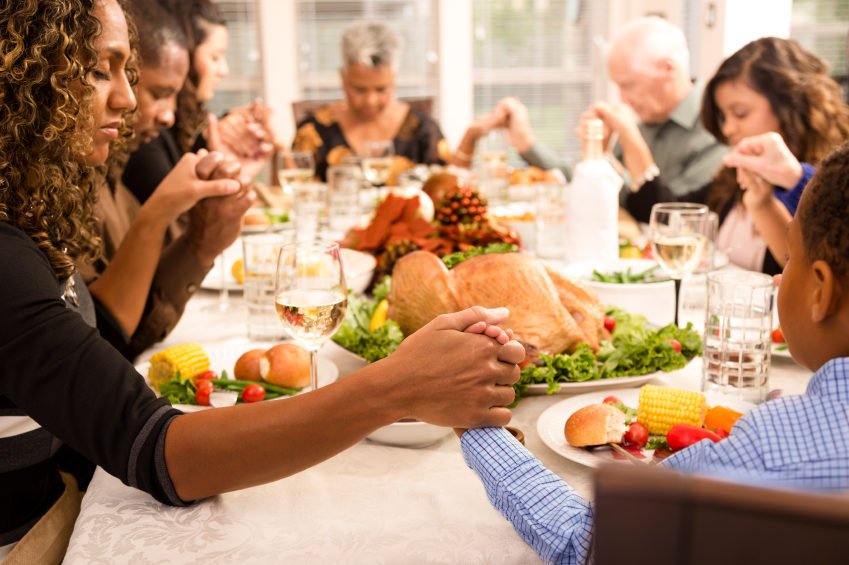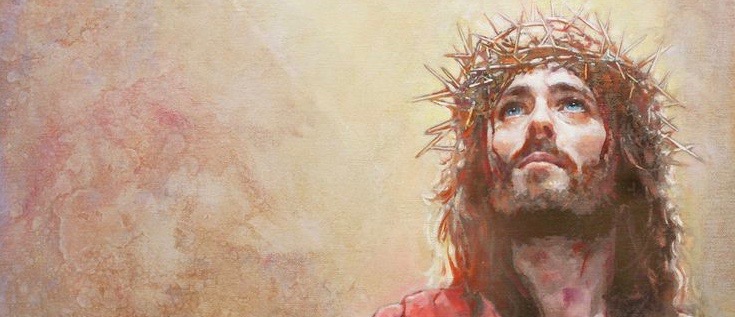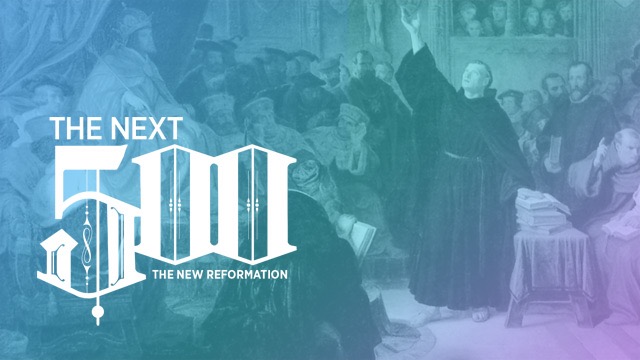A Gratitude Adjustment

Imagine with me, a man sitting around a dinner table. His heart is overwhelmed with gratitude. He sits there surrounded by his children and extended family. With an unrestrained smile on his face he looks at each of his loved ones in the eyes. He has not been a part of a gathering like this in years. In fact, he’s not been near his wife or children for years. Imagine, as his wife lays the final plate of food on the table, she places her hand on his shoulder and asks if everyone would hold hands. Holding hands, that’s another thing he hasn’t done in years. He hasn’t even touched anyone in years. Imagine that he squeezes his wife’s soft and tender hand tightly. As he begins a prayer of thanksgiving, his emotion overwhelms him and tears of joy fill his eyes. His voice cracks, he pauses, and his loving wife finishes his prayer for him.
No, this is not your normal family gathering, nor is it a Hallmark commercial or a Norman Rockwell painting. This is the story of a man whose life has been radically changed. He wasn’t off fighting a war and he hasn’t spent time in prison, at least not the kind of prison you might be thinking of. He had been locked up for years in a prison of a disease, resulting in isolation, injustice, and discrimination. I want us to push rewind and go back a few weeks or months and see why this man is so grateful that he cannot control his emotions. Let’s look at a man who’s like us, who encountered the One Man who could help him.
Luke 17:11-19 tells his story. He was healed of leprosy by Jesus and though we don’t know about his life after he was healed, we can imagine. But to fully understand the power of this story and the radically different life that we’ve imagined after this encounter, we must first understand the life of isolation and utter despair this man lived as a leper in the first century.
These ten were together for a reason. First of all, if they were to be with anyone at all, it would have to be with each other. Secondly, they share a common pain. Pain draws together unlikely companions- with a powerful bond (like Dallas Maverick’s or Rangers fans), or seriously, like a recovery group or cancer support or Grief-Share ministry. These men suffered from Hansen’s Disease, or H.D., its called in the medical community). This disease was incurable and would attack the nervous system- (not the central nervous system but the sensory nerves and especially the extremities- the hands, feet, and facial features. Often it would result in severe ulcer damage and the loss of fingers, toes, even hands and feet. Facial nerves were often destroyed leading to hideous deformation of the face. The nerve damage would cause paralysis and even attack the cranial nerves, leading to blindness.
There was no mistaking someone with leprosy. And because it was a communicable disease, contracted through touch or even through the air, the person was forced by law to be separated from all others- some sources say at least 50 feet- can you imagine. They were even required to shout their coming: “Leper!” (I’m a threat to you, I’m not wanted! I’m an outcast!”). They were ostracized, outcasts, left to a degenerative state and a life of chronic pain. Worse than the disease was their separation from family, friends, and the faith community. Why did ONE come back to express thanks? Were they all grateful but only one expressed it? And can you be truly grateful without expressing it? Why are some people more grateful than others? Is your life marked by thanksgiving?
Choosing a Life of Gratitude I truly believe that a life of thanksgiving (or thanks-living) is a choice. But I’m also convinced that the more vibrant your walk with Christ, the more grateful you are. When you align yourself and, therefore your life, up with God’s perspective on life (that is, who you are and who He is), you WILL live a life of gratitude. To the degree that we are not aligned to God’s Way, we be less grateful. It’s possible to choose a life of gratitude but you must first acknowledge a few things…
- Acknowledge WHAT you have. The Bible says over and over again to “remember” what God has done for you. The old hymn says, “Count your many blessings- name them one by one… count your many blessings, see what God has done.” Health, home, church, family, friends, job, trials. Are you content with what you have? Or do you always tend to want more? Be grateful for what you have. Isn’t it amazing that America is the wealthiest country in the world and yet we are the least content? This reveals the folly of a materialistic life. Many of us have been to other countries where we have served among the poorest of the poor and have found them to be the most joy-filled, content people we’ve ever seen. Why is that? You begin to realize that material blessing is often not a blessing at all, but a curse. And how can such a materialistic people learn to be grateful? What’s the solution?:
- Acknowledge WHY you have what you have.
Not by your own power. “He has made us and we are His.” Everything you have is from God so “enter His courts with thanksgiving- give thanks to Him.” Psalm 100
Not by your own position. Exodus 33:14 – “The Lord replied, “My Presence will go with you, and I will give you rest.” Moses learned that it was only God’s presence that brought him success in life. Your position of power or wealth was not of your own doing. We see this in the book of Daniel where Nebuchadnezzar learned the hard way that “the Most High is sovereign over the kingdoms of men and gives them to anyone He wishes”- Every person of any position has been put there by God. If you have had any success vocationally or financially it’s only because of God. God is the one who gives and takes away. Whatever position you have has been given to you by God.
Not by your own person. Zechariah 4:6 “Not by might nor by power, but by my Spirit’, says the Lord almighty.” Why do some people have a sense of entitlement- they think the world owes them something- they deserve what they want- when others are so humble and so grateful when they receive even something small? They see all gifts from God.
- Acknowledge HOW you have what you have.
You are blessed. Proverbs 10:22 “The blessing of the Lord brings wealth and He adds no trouble to it.” Wealth brings great trouble if it comes through ungodly means.
You are loved. Everything we have is an act of grace from God. Romans 5:8 – While we were sinners Christ died for us! 1 John 4:10 – it’s not that we loved God but that He first loved us. And verse 19 says we can now love others in the same way.
You are responsible. 1 Corinthians 4:1-2– those given a trust must be found faithful. You are a steward of all that you have. How do I steward all that I have been given? Exodus 21:5-6– the bondservant who chooses to be a voluntary slave to the Master. I am responsible for the grace that I have received from God.
- Acknowledge WHO you have.
Family– express thanks to your family, Friends, Others people in your life- your brothers and sisters in Christ. In the end, life is really about WHO you have, not WHAT you have. If you want friends be a friend. But IF you don’t have Christ, consider this:
“He who did not spare His own Son, but gave Him up for us all—how will He not also, along with Him, graciously give us all things?” Romans 8:32 All of God’s blessings begin with Jesus. It’s why Thanksgiving is clearly a believers’ holiday- like the atheist who suddenly felt profoundly grateful and realized he had no one to thank. We know who to thank. Our gratitude is ultimately focused on a Person.
- Gratitude is always centered on Christ. This leper’s story is our story- we are all diseased; we’re all lepers. We have a disease called sin that only Christ can cure. We don’t deserve his love. The Bible says that we deserve eternal separation from God.
Thank Him for your salvation- and share it with others!
“The wages of sin is death but the free gift of God is eternal life through Jesus Christ our Lord.” Romans 6:23
“I am the Way, the Truth, and the Life, no one comes to Father but through me.” John 14:6
“God so love the world that he gave His one and only son so that whosoever believes in Him would not perish but have eternal life.” John 3:16





